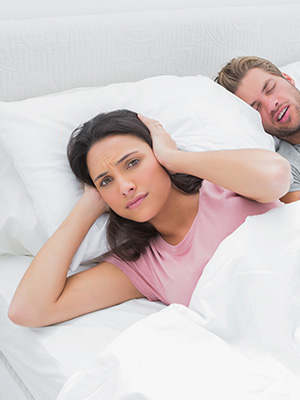Sleep Apnea FAQs
If you or a member of your family suffers from sleep apnea, you probably have a lot of questions. Some of the most frequently asked questions can be found below, and if you have any more concerns, don’t hesitate to contact Drs. Stiles, Dr. Wilcox or a member of our friendly team.
What are the signs of sleep apnea?
- Insomnia or difficulty sleeping
- Loud snoring at night
- Waking up at night short of breath
- Snorting or choking sounds during the night (indicating a restart of breathing)
- Headaches upon waking in the morning
- Falling asleep unintentionally during the day
- Extreme drowsiness throughout the day
- Difficulty remembering or learning because of lack of concentration
- Feeling depressed or having mood swings or personality changes
- Dry throat upon waking
What are risk factors for sleep apnea?
Obstructive sleep apnea is more common in males than females, and more common in older adults (40 and up). However, anyone – regardless of gender or age – can suffer from sleep apnea. Other risk factors include obesity, smoking, drinking, use of sedatives or tranquilizers, high blood pressure, and family history. Central sleep apnea strikes most often in people with heart disorders, neuromuscular disorders, strokes, or brain tumors. It is also more common in males.
Can children suffer from sleep apnea?
Yes. In children, sleep apnea can cause hyperactivity, poor school performance, and angry or hostile behavior. Children who have sleep apnea also may have unusual sleeping positions, bedwetting, and may breathe through their mouths instead of their noses during the day.
I think I may have sleep apnea. What should I do?
If you think you have sleep apnea, simply call Stiles Dentistry. We can help guide you through the diagnosis and treatment process and will be here for you, every step of the way. There is no reason you, or a loved one, should have to suffer.


 Website Powered by Sesame 24-7™
Website Powered by Sesame 24-7™